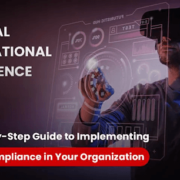Having a baby is meant to be a joyful time in a person’s life. It’s a time of shopping for tiny clothing and throwing parties with colored balloons that reveal the baby’s gender to guests and parents-to-be alike.
We’ve all heard the jokes about the lack of sleep that comes with having a baby. “Sleep now because you won’t for 18 years” is a popular joke expectant mothers hear throughout their pregnancy. However, very little is discussed about the importance of financial planning, either before or after the bundle of joy arrives.
How to Prepare Financially for a New Baby
Being financially responsible for a child is about more than just feeding them and keeping them clothed. From deciding whether to go back to work after the baby is born to drawing up a will, financial planning can greatly reduce the stress that comes with being responsible for a tiny person.
Many people say having a baby is life-changing, but with proper financial consideration, before the baby arrives, these changes can be less burdensome. Spend more time enjoying special moments with your baby and less time crunching numbers with these 7 aspects of your finances to consider when expanding your family.
- Prepare for unpaid maternity leave. While many countries offer paid maternity leave, the United States is one of the few countries that don’t. By law, employees are required to allow women to take 12 weeks off from work without losing their job. However, unless you have unused vacation time, those 12 weeks are unpaid.
More and more countries are offering paid maternity – and in rare cases, paternity – leave. But many companies still don’t. When accepting a new job, it’s important to research your potential employer’s policy if you plan to have children someday during that employment. If you plan accordingly, you could possibly receive short-term disability for at least part of the 12 weeks.
Many employers do offer short-term or long-term disability with their benefits package. It’s intended to be used in the event of an injury or an accident, but in some cases, it can be used for a portion of the maternity leave.
- Add your child to your tax forms. People generally dread tax time, but parents who can claim dependents see significant tax breaks and credits. In the U.S., a new tax law replaces the dependent exemption with the Child Tax Credit. The new law increases the tax credit from $1,000 to $2,000 per dependent. It also raises the income limit to quality to $200,000 for individuals and $400,000 for couples who file jointly.
The Earned Income Tax Credit and the Child & Dependent Care Credit are other tax filings parents can use to save money. Check with your tax return provider to find out if you qualify for these or any other benefits.
- Update your health and life insurance. New parents might think their health insurance company would be aware of the baby’s birth and automatically add the new baby to their policy. It doesn’t happen that way. But the good news is you don’t have to wait for an enrollment period. A new baby is a life event that can be added to the policy at any point in the year.
However, many insurance policies require that a new child be added to the policy within 30, or, in some cases, 60 days after birth. If a newborn is added within the policy’s timeframe, they will be granted retroactive coverage, meaning any medical issues between the time of birth and the time of enrollment would be covered by the health insurance policy.
When a new life arrives, the last thing parents will be thinking of is their own deaths. No one wants to face the fact that they won’t live forever when they just became responsible for a little one. But life insurance is a necessity, especially when there are children to consider.
A life insurance policy can be taken out on just one of the parents, but policies on both parents are the best choice, even if the policies are the bare minimum. Many employers offer life insurance in their benefits package. Policies can also be purchased directly from an insurance agency for a minimal monthly payment.
- Set up a college trust fund. As hard as it is to imagine, someday your newborn baby will be heading off to college. Starting a trust fund or Junior ISA at an early age can help set your child up to begin their adult life debt-free. See the difference between a Childs Trust Fund and a Junior ISA in this blog post.
Education savings accounts can be contributed to in small amounts by the parents and any monetary gifts the baby receives in the first years of their life. It will be at least a few years before they start asking for an allowance and you can use that time to pave the way for a successful life for your child by building them a firm foundation to start their new life away from you upon.
- Create an emergency fund. Unexpected car repairs, home repairs like the need for foundation repair waukesha wi, company layoffs, medical emergencies, and other life events happen. These are money drains people have to deal with constantly as part of life, even without having kids. If you aren’t sure if foundation issues are significant or if any are even present, you can request a professional inspection of the home from a good services like Foundation Contractors Ottawa.
But when you have kids, coming up with that money isn’t always easy. Setting aside a small number of your earnings into savings each month to build an emergency fund can provide a fallback for the family until the situation is resolved.
Emergency funds help prevent the necessity of dipping into your retirement savings or your child’s tuition fund. Your life and your family’s life will be less stressful if you know you can provide for them in the event of an emergency.
One of the most common emergencies people experience at least once in their life is car trouble. Depending on the extent of the damage, it’s sometimes more financially sound to buy or lease a new car instead of repairing the broken down one. When deciding on a car, it’s important to consider your family’s budget and circumstances, such as needing a loan and working on your credit score ahead.
It’s also vital to know that a trustworthy gold IRA company protects your investment. Visit https://s3.amazonaws.com/reviewsgoldira/best-companies.html to help you understand what type of precious metals IRA account would be most suitable for you.
- Budget in childcare. In our current economy, most families find it necessary for both parents to hold full-time jobs just to make ends meet and try to get a little bit ahead. That doesn’t leave anyone home to take care of the kids unless you have a family member willing to take on diaper duty. One of the biggest expenses new parents will face is childcare.
When planning financially for a new addition to your family, creating a new household budget can add structure to what will likely be very unstructured and possibly chaotic time for a little while. And it will give you good experience for implementing structure into your child’s life as they get older.
Some employers offer allowances or tax credits for childcare. Read through your company’s benefits package thoroughly to reap any benefits that might be found there for new parents.
- Estate planning isn’t just for the rich; it’s for your legacy. Bringing a new life into this world sure makes you think about your own mortality. Everyone should have a last will and testament of some kind that gives clear guidelines of what is to be done in the event of their death, such as funeral arrangements, cremation services, and division of any property. Search estate planning attorney near me to take care of important legal matters.
However, when you have young children, there are other considerations that need to be included in the will. In particular, it is frequently used to name a designated legal guardian if tragedy strikes both parents at the same time. But estate planning ensures that your wishes are kept beyond what a simple will allows for.
The christening ceremony where a child is appointed a godmother and godfather is a tradition that many families partake in. However, it’s not legally binding. A notarized will ensures that there is no confusion or legal battles to be fought over custodial arrangements and other legal issues, such as health care proxy and power of attorney, but wealth management takes care of financial arrangements and more for your child.
Let Your Baby Be the Only Thing Keeping You Up at Night
Whether you’ve recently had a child or are expecting one in the near future, financially planning for the cost of raising a child can really help reduce the strain on your family. Being a new parent is already going to spend your life in the best ways. Following these tips will let you focus on the fun changes instead of all of the stresses.
You don’t have to plan it all at once. Start small with the more pressing financial obligations first, such as updating your health insurance policy, which can help mitigate the costs of any hospital visits after the child’s birth.
Raising a child is supposed to be one of the best times of your life. It’s also one of the scariest. Proper financial planning can help ease your fears and give you the chance to focus on enjoying your new baby before they grow up and go off to college, which tends to happen in the blink of an eye.

















